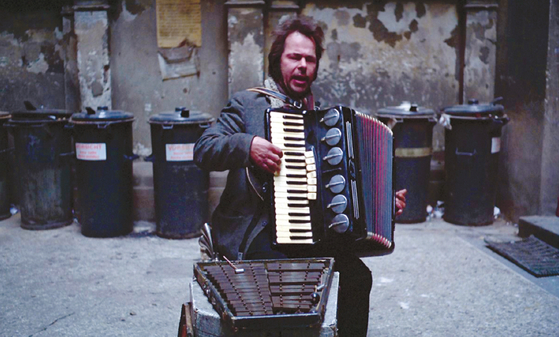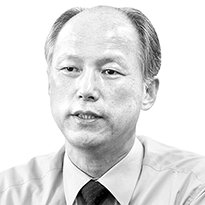
즘 많은 종교학자들과 사회학자들은 "종교의 시대가 끝났다"고 말합니다. 유튜브와 같은 매체에서도 이런 주장을 쉽게 접할 수 있습니다. 과학과 기술이 눈부시게 발전하고, 인공지능, 유전자 편집, 사이보그 기술이 인간의 삶을 근본적으로 바꾸고 있는 포스트휴먼 시대에, 종교는 더 이상 필요하지 않다는 것입니다. 하지만 정말 그럴까요? 포스트휴먼 시대의 도래가 종교의 필요성을 무색하게 만들고 있을까요?
찰스 테일러, 알리스터 맥그래스, 미로슬라브 볼프 같은 현대의 사상가들은 전혀 다르게 말합니다. 테일러는 오늘날 우리가 '세속화 시대'에 살고 있지만, 그 속에서도 인간은 여전히 의미와 목적을 갈망한다고 말합니다. 그는 인간이 기술적, 과학적 진보에도 불구하고 존재의 궁극적 질문들에 대해 답을 찾고자 하는 영적 욕구가 사라지지 않았다고 주장합니다. 알리스터 맥그래스는 과학이 인간의 모든 문제를 해결할 수 없음을 강조하며, 종교가 인간의 내면에서 일어나는 깊은 질문들에 대한 답을 제공할 수 있다고 말합니다. 볼프는 더 나아가, 종교가 인간의 상처를 치유하고 화해와 용서를 통해 공동체를 재구성하는 데 필수적인 역할을 해야 한다고 주장합니다.
이들의 사상은 한 가지 중요한 메시지를 전달합니다: 포스트휴먼 시대에도 종교는 여전히 필요하다.
포스트휴먼 시대의 특징은 인간의 정체성과 능력이 기술에 의해 확장되고 변형되는 것입니다. 과학과 기술이 발전하며, 인간과 기계, 인간과 자연의 경계가 흐려지고, 전통적 인간의 정의가 도전받고 있습니다. 이러한 시대적 변화는 우리에게 존재의 본질과 의미에 대해 다시 묻습니다. 인간이 과연 단지 물질적 존재일까요? 우리는 과학으로 모든 질문에 답할 수 있을까요? 기술로 모든 문제를 해결할 수 있을까요?
미로슬라브 볼프는 이렇게 묻습니다: "우리는 서로를 어떻게 대할 것인가?" 인간의 정체성이 흔들리고, 윤리적 기준이 도전을 받을 때, 종교는 화해와 용서, 사랑과 정의의 길을 제시할 수 있습니다. 볼프는 종교가 단지 개인의 구원을 넘어, 공동체의 재구성과 치유에 필수적인 역할을 할 수 있다고 강조합니다. 그는 포스트휴먼 시대가 되더라도 종교는 여전히 인간의 내면적 갈망과 윤리적 요구에 응답할 수 있는 중요한 도구가 될 수 있다고 주장합니다.
알리스터 맥그래스는 한 걸음 더 나아갑니다. 그는 종교가 과학과 기술을 적대시하지 않고, 오히려 그 속에서 인간이 더 깊이 있는 의미를 발견하도록 도울 수 있다고 말합니다. 과학이 우리에게 세계의 작동 방식을 알려준다면, 종교는 우리에게 왜 우리가 여기에 있으며, 무엇을 위해 살아야 하는지 알려줍니다. 맥그래스는 종교가 현대의 윤리적, 영적 갈증을 해소하는 중요한 역할을 할 수 있다고 봅니다.
찰스 테일러 역시 포스트모던 사회에서도 종교의 의미를 강조합니다. 그는 인간이 세속화된 세계에서도 여전히 초월적인 의미를 찾고 있으며, 종교가 이러한 인간의 갈망에 응답할 수 있는 공간을 제공한다고 말합니다. 종교는 인간이 물질적 세계를 넘어, 더 높은 차원의 영적 경험과 의미를 추구하도록 돕습니다.
그러나 이러한 흐름 속에서 한국의 그리스도교는 어떻습니까? 한국의 기독교와 천주교는 포스트휴먼 시대의 이러한 도전에 대해 충분히 준비하고, 적극적으로 대처하고 있는가 하는 의문이 듭니다. 오히려 한국의 그리스도교는 시대적 변화 앞에서 무기력하게 손을 놓고 있거나, 때로는 허탈한 마음으로 막연히 현실을 외면하고 있는 것이 아닐까요?
지금 한국의 교회가 필요한 것은 이러한 변화에 대해 더 깊이 성찰하고, 새로운 시대의 요구에 맞는 새로운 담론과 실천을 찾아 나서려는 의지일 것입니다. 시대의 변화가 두렵고, 때로는 혼란스럽게 느껴질 수 있겠지만, 그럴수록 교회는 새로운 비전을 가지고 나아가야 하지 않겠습니까? 이제는 과거의 방식에 머물러 있기보다는, 포스트휴먼 시대가 던지는 도전에 과감히 맞서고, 그 안에서 새로운 기회를 발견해야 할 것입니다.
과학과 기술의 발전에 대한 깊이 있는 이해와 열린 대화를 시작하는 것도 중요합니다. 인공지능, 유전자 편집, 생명 연장 기술이 가져올 윤리적 딜레마에 대해 교회는 명확한 입장을 제시하고, 이를 교인들과 함께 토론하며 새로운 담론을 형성해야 합니다. 이러한 논의를 통해 교회는 인간의 존엄성과 가치가 훼손되지 않도록 경계하고 지키는 역할을 할 수 있습니다.
또한, 한국 교회는 더 개방적이고 포용적인 태도로 다양한 배경을 가진 사람들에게 다가가야 할 것입니다. 젊은 세대와 종교에 소외감을 느끼는 이들을 다시 교회로 이끌기 위해서는 진정성 있는 대화와 환대가 필요하지 않겠습니까? 현대 사회의 고립과 소외 속에서 교회는 더 이상 자신들만의 울타리에 머무르지 말고, 가장 약하고 소외된 이들에게 다가가는, 사랑과 연대의 공동체가 되어야 합니다.
결국, 포스트휴먼 시대는 종교가 새롭게 빛을 발할 수 있는 기회를 제공하고 있습니다. 한국의 그리스도교는 이 변화를 통해 더 큰 의미와 가치를 발현할 수 있습니다. 교회는 이 시대의 도전에 맞서, 하느님의 사랑과 진리를 세상에 전하는 새로운 길을 개척해야 할 것입니다. 그렇게 할 때, 포스트휴먼 시대에도 우리의 신앙과 공동체는 더욱 강하고, 깊고, 생명력 넘치는 모습으로 거듭날 수 있을 것입니다.
포스트휴먼 시대에도 종교는 결코 끝나지 않았습니다. 오히려, 지금이야말로 새로운 시대의 요구에 응답하며, 더욱 풍성한 신앙의 길을 찾아 나설 때가 아닐까요?
*필자/조광호
가톨릭 신부. 전 주교단 출판국장. 인천 가톨릭대학 전 교수.
\*아래는 위 기사를 '구글 번역'으로 번역한 영문 기사의 [전문]입니다. '구글번역'은 이해도 높이기를 위해 노력하고 있습니다. 영문 번역에 오류가 있을 수 있음을 전제로 합니다.<*The following is [the full text] of the English article translated by 'Google Translate'. 'Google Translate' is working hard to improve understanding. It is assumed that there may be errors in the English translation.>
Postmodern Era, Is the Era of Religion Over?
- Father Cho Gwang-ho
These days, many religious scholars and sociologists say, "The era of religion is over." You can easily find such claims on media such as YouTube. In the posthuman era, where science and technology are developing rapidly and artificial intelligence, gene editing, and cyborg technology are fundamentally changing human life, religion is no longer necessary. But is that really true? Is the advent of the posthuman era making religion meaningless?
Modern thinkers such as Charles Taylor, Alister McGrath, and Miroslav Volf say something completely different. Taylor says that although we live in a 'secular era' today, humans still yearn for meaning and purpose. He argues that despite technological and scientific progress, humans' spiritual desire to find answers to the ultimate questions of existence has not disappeared. Alister McGrath emphasizes that science cannot solve all human problems, and says that religion can provide answers to the deep questions that arise within humans. Wolf further argues that religion must play an essential role in healing human wounds and reconstructing communities through reconciliation and forgiveness.
Their ideas convey one important message: religion is still necessary even in the posthuman era.
The posthuman era is characterized by the expansion and transformation of human identity and capabilities by technology. As science and technology advance, the boundaries between humans and machines, humans and nature are blurred, and traditional definitions of humans are challenged. This epochal change asks us again about the nature and meaning of existence. Are humans really just material beings? Can we answer all questions with science? Can we solve all problems with technology?
Miroslav Wolf asks: "How should we treat each other?" When human identity is shaken and ethical standards are challenged, religion can offer a path to reconciliation, forgiveness, love, and justice. Wolf emphasizes that religion can play an essential role in reconstructing and healing communities beyond just individual salvation. He argues that even in the posthuman era, religion can still be an important tool that responds to human inner longings and ethical demands.
Alister McGrath goes one step further. He says that religion does not antagonize science and technology, but rather can help humans discover deeper meaning within them. If science tells us how the world works, religion tells us why we are here and what we should live for. McGrath believes that religion can play an important role in relieving the ethical and spiritual thirst of modern times.
Charles Taylor also emphasizes the significance of religion in postmodern society. He says that humans still seek transcendent meaning even in a secularized world, and that religion provides a space where they can respond to this human longing. Religion helps humans pursue higher levels of spiritual experience and meaning beyond the material world.
However, what about Christianity in Korea in this flow? I wonder if Korean Christianity and Catholicism are sufficiently prepared for and actively responding to these challenges of the posthuman era. Rather, isn’t Korean Christianity either helplessly sitting back and letting go of the changes of the times, or at times vaguely turning away from reality with a sense of emptiness?
What the Korean church needs now is to reflect more deeply on these changes and to seek out new discourses and practices that meet the demands of the new era. The changes of the times may be scary and sometimes confusing, but shouldn’t the church move forward with a new vision? Rather than staying in the ways of the past, it should boldly face the challenges of the posthuman era and discover new opportunities within them.
It is also important to have a deep understanding of and begin open dialogue with the advancement of science and technology. The church should present a clear position on the ethical dilemmas that artificial intelligence, gene editing, and life extension technology will bring, discuss them with its members, and form a new discourse. Through these discussions, the church can play a role in guarding and protecting human dignity and value from being undermined.
In addition, the Korean church should approach people from diverse backgrounds with a more open and inclusive attitude. In order to bring the younger generation and those who feel alienated from religion back to the church, shouldn’t genuine dialogue and hospitality be necessary? In the midst of the isolation and alienation of modern society, the church should no longer remain within its own fences, but should become a community of love and solidarity that reaches out to the weakest and most marginalized.
Ultimately, the posthuman era provides an opportunity for religion to shine anew. Korean Christianity can express greater meaning and value through this change. The church must pioneer a new path to convey God’s love and truth to the world in response to the challenges of this era. When we do so, our faith and community will be reborn stronger, deeper, and more vibrant even in the posthuman era.
Religion has never ended in the posthuman era. Rather, isn’t now the time to respond to the demands of the new era and find a richer path to faith?
*Author/Jo Gwang-ho
Catholic priest. Former director of the publications department of the bishopric. Former professor at Incheon Catholic University.

![[로터리] 사회갈등과 공론의 힘](https://newsimg.sedaily.com/2024/09/19/2DECRGHX1C_1.jpg)

![[손병채의 센스메이킹] 〈63〉AI 뉴스 캐스터, 진정성에 대해 묻다](https://img.etnews.com/news/article/2024/09/18/news-p.v1.20240918.3fd64ae67f4c4085a173c409aaa3b76a_P1.jpg)





![[오픈 업] 시니어 활동의 중요성](https://news.koreadaily.com/data/photo/202409/18/3aae75f3-10d6-4e94-8db9-0a9efc5d2368.jpg)